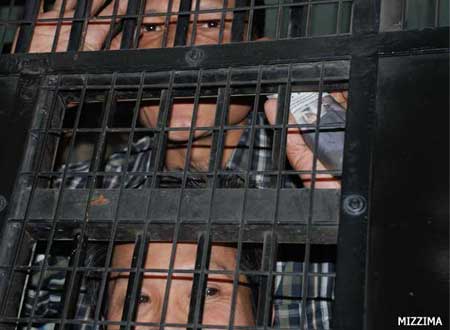India West Bengal State revoked on November 11 its order to deport to Burma 34 Arakanese and Karen rebels being held at a Kolkata prison, one of their representatives said...
 The joint secretary of the state’s Home Ministry had issued the order in the middle of last month.
The joint secretary of the state’s Home Ministry had issued the order in the middle of last month.
“Now this order has been revoked,” Dr. Tint Swe, a representative of the 34 Burmese, said. Tint Swe was elected in 1990 as a National League for Democracy member of parliament and has been living in New Delhi since December that year, after fleeing a junta crackdown on NLD members and others of the pro-democracy movement.
The members of National United Party of Arakan (NUPA) and the Karen National Union (KNU), armed ethnic groups fighting the Burmese regime, were arrested by the Indian army on February 11, 1998. The rebels claimed they were betrayed by the Indian military intelligence officer Lieutenant Colonel Grewal, who they said offered them safe haven on Landfall Island on India’s Andaman and Nicobar Islands. But upon arrival at the island six of their top leaders were led off and shot dead, they said.
The rest were detained for six years without trial at Port Blair on Andaman Island. In October 2006, after work on their behalf by a group of rights lawyers and politicians, they were transferred to the Presidency Jail in Kolkata. The city’s sessions court charged them with illegal entry into India, and possession of arms and explosives.
Grewal has since left military intelligence and was reportedly living in Rangoon as a guest of the Burmese military junta. Reports have said at the time of the group’s arrest, Burmese Army officers were present on a neighbouring island.
After more than three-year trial, the Indian Central Bureau Investigation (CBI) reached a settlement with the accused in July last year. The court accepted a plea bargain based on time served but imposed a fine of 6,000 rupees (US$128) on each of the group.
All 34 of the group had paid their fines on September 15 but were still being held in the Kolkata prison on the grounds that they were without proper documents to stay in India, Tint Swe said. Nevertheless, they had submitted applications with UNHCR to be recognised as asylum seekers.
The UNHCR had asked permission from the Indian government to interview them over the applications, a UN official from New Delhi said on condition of anonymity. She said that Indian officials had failed to respond.
“They want their freedom as soon as possible. They have spent more than 12 years in prison and their case has been concluded by the court, so they are suffering great stress … in facing an uncertain future,” Dr. Tint Swe said.



